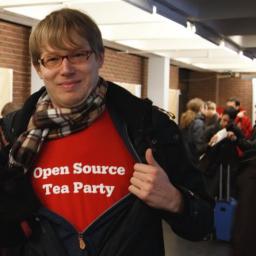
Some people have had enough, and they've organized a boycott at "
http://boycottsystemd.org" to organize efforts. From the top: "
Disclaimer: We are not sysvinit purists by any means. We do recognize the need for a new init system in the 21st century, but systemd is not it." OK, that's enough to keep me reading. They outline twelve well-thought-out reasons systemd is dangerous, and a set of ways you can get involved, including refusing to use systemd distros, moving to slackware, crux, gentoo, BSD, and more. Here's just one of them:
systemd clusters itself into PID 1. Due to it controlling lots of different components, this means that there are tons of scenarios in which it can crash and bring down the whole system. But in addition, this means that plenty of non-kernel system upgrades will now require a reboot. Enjoy your new Windows 9 Linux system! In fairness, systemd does provide a mechanism to reserialize and reexecute systemctl in real time. If this fails, of course, the system goes down. There are several ways that this can occur9. This happens to be another example of SPOF.
Interesting times. When's the last time you heard someone advocate moving immediately to Slackware or Gentoo?
 Some people have had enough, and they've organized a boycott at "http://boycottsystemd.org" to organize efforts. From the top: "Disclaimer: We are not sysvinit purists by any means. We do recognize the need for a new init system in the 21st century, but systemd is not it." OK, that's enough to keep me reading. They outline twelve well-thought-out reasons systemd is dangerous, and a set of ways you can get involved, including refusing to use systemd distros, moving to slackware, crux, gentoo, BSD, and more. Here's just one of them:
Some people have had enough, and they've organized a boycott at "http://boycottsystemd.org" to organize efforts. From the top: "Disclaimer: We are not sysvinit purists by any means. We do recognize the need for a new init system in the 21st century, but systemd is not it." OK, that's enough to keep me reading. They outline twelve well-thought-out reasons systemd is dangerous, and a set of ways you can get involved, including refusing to use systemd distros, moving to slackware, crux, gentoo, BSD, and more. Here's just one of them:
It's been amusing watching the rest of the Linux world light itself aflame though. At this point, I'd be more likely to recommend someone leaving Windows to jump onto FreeBSD than one of the big Linux distros. Including pulseaudio by default for no good reason was a bad enough move they all seemed to rush to to do without thinking much about it first (hey, sound in Linux can be complicated sometimes due to hardware incompatibilities...let's add a totally more complex abstraction layer on top of the existing complex system and hope it makes things better!), but systemd makes that look like small potatoes (at least Pulseaudio is worthwhile software for SOME usage scenarios...).
Somewhere along the last few years, everyone seemed to forget the "if it's not broke, don't fix it" golden rule. Innovating new tools is great and all, but creation solutions without problems and then making them default across the board really doesn't help matters. It'd have been nice if they'd forked into a new line of distros at least (hell, call it Linux NT for all I care :-P), rather than really alienate people who in many cases just started learning their way around one system only to have it entirely ripped away from them and replaced by a new system upon a system upgrade (worse so for those on Ubuntu that went from sysvinit to upstart to systemd all in the space of <2 years). This sort of disorganized race to follow whatever wacky decisions come down from mostly whatever Redhat does really resembles mass insanity from the sidelines...